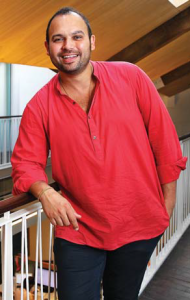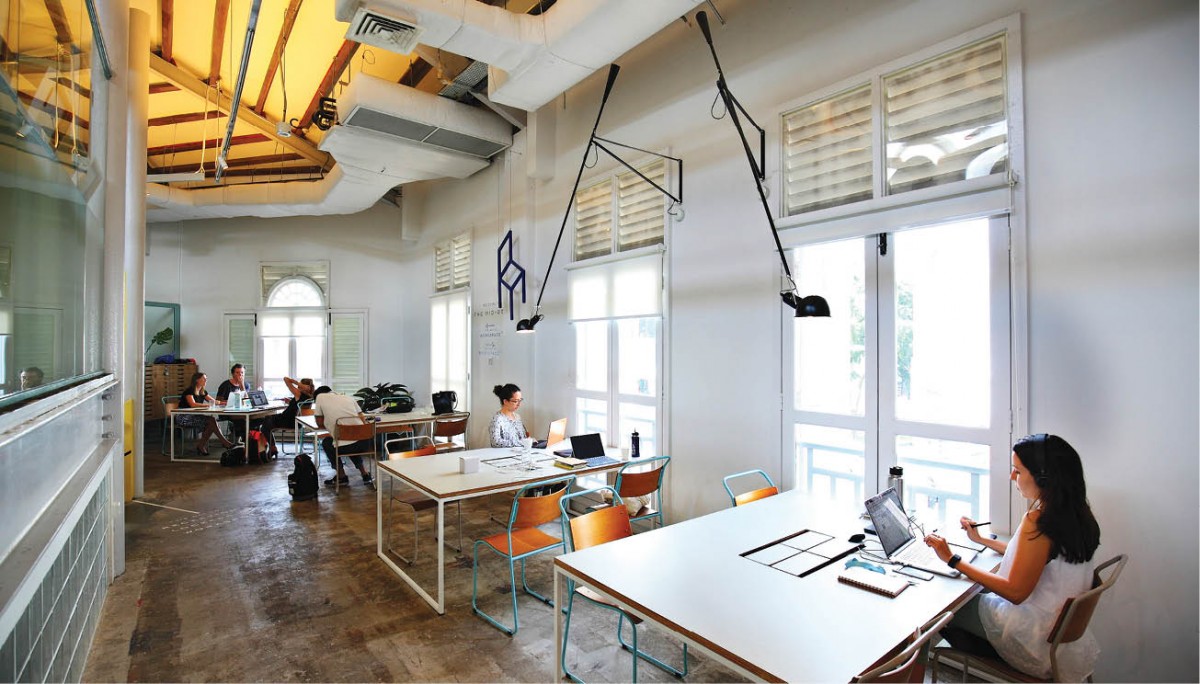Ben Gattie, the co-founder, and CEO at The Working Capitol wanted to nurture creative work environments in his home country of Singapore. After working for a real estate developer focused on SoHo loft conversions in New York City, Ben returned to Singapore about 8 years ago and set up The Bamboo Group, a boutique real estate company specializing in the redevelopment of neighborhood shop houses. Deciding to enter a more meaningful and multifaceted industry centered around creating inspired work environments for companies big and small, Gattie co-founded The Working Capitol with his sister, Saranta.
Today the professional landscape in Singapore is changing, and it’s all thanks to places like The Working Capitol. We caught up with Ben to discuss these changes and how his work is enabling more open and flexible work environments.
Hi, Ben. What is work culture like in Singapore? Have people embraced social workspaces?
It was quite conventional in a lot of ways until a few years ago with the mainstream emphasizing job security and working out of the central business district. Singapore has made a conscious effort to decentralize, and independent operators such as ourselves have legitimized fringe locations and social workspaces. Thankfully, Singapore is accustomed to change at an aggressive pace and is very adaptable to new things. Singapore apparently has over 60+ co-working spaces so I certainly hope this means people have embraced social workspaces! That said, in our earlier days, it was essential to educate people about what we were doing and to adopt a genuine spirit of giving before we could expect to get in return.
Does TWC aim to promote shared work culture and if so, how?

Ben Gatti
Definitely. We try to promote shared work culture across as many touch points as possible. The design of our space is research backed to promote varied types of interactions, ensuring there are different environments suited for different types of work or social engagement.
We want all our members to feel a sense of ownership of the entire building regardless if they may have signed up for a dedicated workspace. Our events and programming ensure that people come together across different points of interest, which we populate according to the verticals of arts and culture, personal and business development, health and wellness and lifestyle and entertainment.
Furthermore, our team is genuinely interested in what our members do and aims to facilitate interactions and connections whenever possible.
When TWC was being developed, was special attention paid to design?
Yes. Design with intention is key i.e understanding why the spaces exist and for what purpose it serves. Design is always best when it puts the member experience first and naturally weaves these human experiences into the built environment.
In your experience, what type of design promotes a better work culture, while also increasing productivity?
Specifically, in the case of The Working Capitol, the flow of one space into another, the incorporation of natural light, a lively color palette and ensuring there are different types of micro-environments suited for different types of work made accessible to everyone have been major contributors to our unique energy.
Do you believe that the physical design of a shared workspace is an essential part of the model?
It is an essential part of the model. It directly influences not only how well we can perform operationally, but how successful we can be at creating the right energy and interactions. If the hardware is poorly designed, it makes it that much more challenging for our team and all their efforts to bring the space to life successfully, ensuring people are inspired to do their best work.
What types of members do you attract? For example are you focused on the local community or do does TWC extend themselves to digital nomads?
Our members truly span a broad cross section. Being fortunate enough to have an international upbringing and exposure to different cultures, it was extremely important for us to champion diversity in terms of the type of industries we cater to, as well as different stages of development. We welcome everyone from solo-preneurs to large companies. That diversity can only help to provide different perspectives and learnings to local businesses in Singapore and enable people to grow in both business and personally.
On that same note, do you have corporate members or business partners? If so, why do you think that they are drawn to a place like TWC?
Our corporate members tell us the main draw has been to attract and retain the best talent. They want to provide their teams with access to inspiring spaces, access to amenities and opportunities to engage with other members and companies.
Join Coworking Europe Conference for more insights, data and connections!




0 Comments